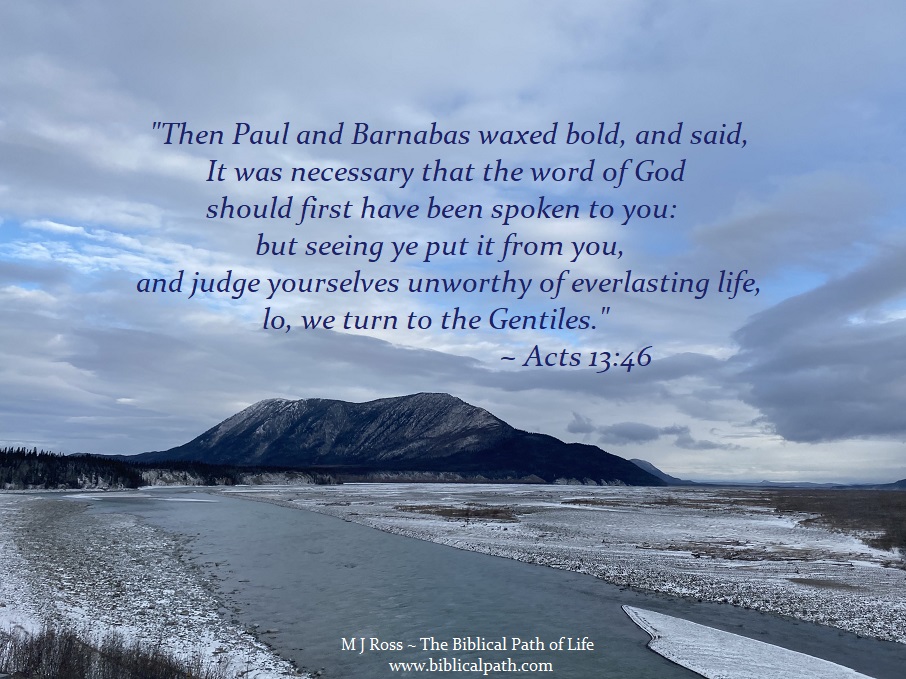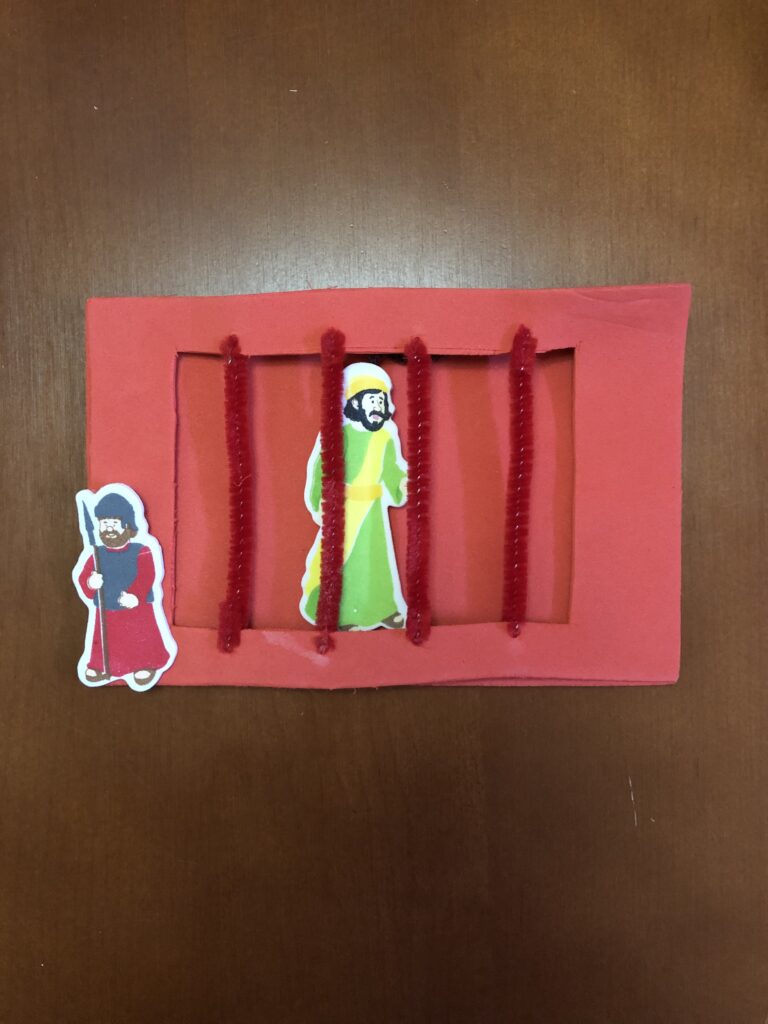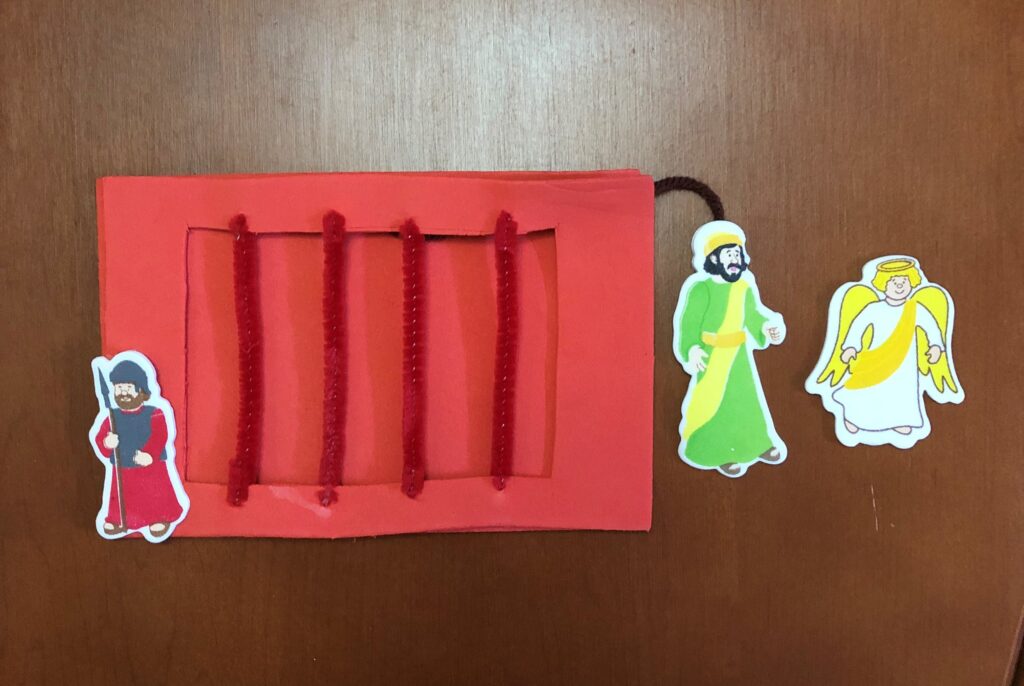
Key Verse
Then Paul and Barnabas waxed bold, and said, It was necessary that the word of God should first have been spoken to you: but seeing ye put it from you, and judge yourselves unworthy of everlasting life, lo, we turn to the Gentiles.
—Acts 13:46
Key Verse Thought: Read the Key Verse. In this lesson, we will learn about another rejection of Jesus by the Jewish people, and with that rejection, the message of Jesus diminishes to the Jewish people and the focus is turned to the Gentiles. We will learn that Paul was called to be a light to the Gentile people (Gentile means anyone not Jewish).
Emphasis: To recognize that not only is salvation available to anyone, but it is the job of each Christian to go and tell others about Jesus – no matter what persecution may come. It is also important to stand for the truth that Jesus is the only way to gain salvation.
Lesson Summary: We have recognized that Peter learned something from God – God could save anyone, not just the Jews. We also saw the persecution of Believers continue, for James was martyred and Peter was imprisoned. Nevertheless, the church continued to grow. We were reintroduced to Barnabas (for the church in Jerusalem sent him out to minister to many Believers), who had gone to Tarsus and found Saul. We also understood that it was in Antioch that Believers were first called Christians.
Through our lessons in the last few weeks, we cannot help but notice that the Gospel message of Jesus had been sent forth, and it was no longer focused toward the Jewish people. Anyone who believed could be saved. This message is reinforced in this lesson as we see the emphasis turn to the Gentile nations around through the missionary journeys of Paul.
Paul and Barnabas were separated out to go and tell others about Jesus. We will follow their travels into the other countries and cities as they teach the people that the Old Testament Law could not justify them before God. However they were to understand that God sent Jesus, the One promised in the Old Testament, and only Jesus could give salvation. With this message, many believed and the Gospel message was spread, but it also brought great persecution from the Jewish people. Paul revealed that although some Jews believed, the majority of the Jewish people had rejected the Gospel message, so Paul was to be a light to the Gentiles. He was to focus his ministry to the preaching of Jesus to the Gentile people.
Paul and Barnabas were kicked out of a city for preaching Jesus, but healed a crippled man in the next city. They stoned Paul, but he got up and continued on to the next city preaching the same message. After visiting many cities, they returned to encourage the new believers. They then returned to Antioch with a report of what God had done through their preaching of Jesus. However, when they heard of false teaching, they returned to Jerusalem to defend the truth that Salvation is by Grace through Jesus. They returned to Jerusalem with letters of these truths.
Y3Q2 – Lesson 8 Questions
Y3Q2 – Lesson 8 Children’s Worksheets
If you are teaching this to younger children, the following is a craft idea to help them remember this lesson:

We made a ship with stickers to remember Paul’s First Missionary Journey.
The Biblical Path of Life – Year Three, Quarter Two is available through Amazon.





